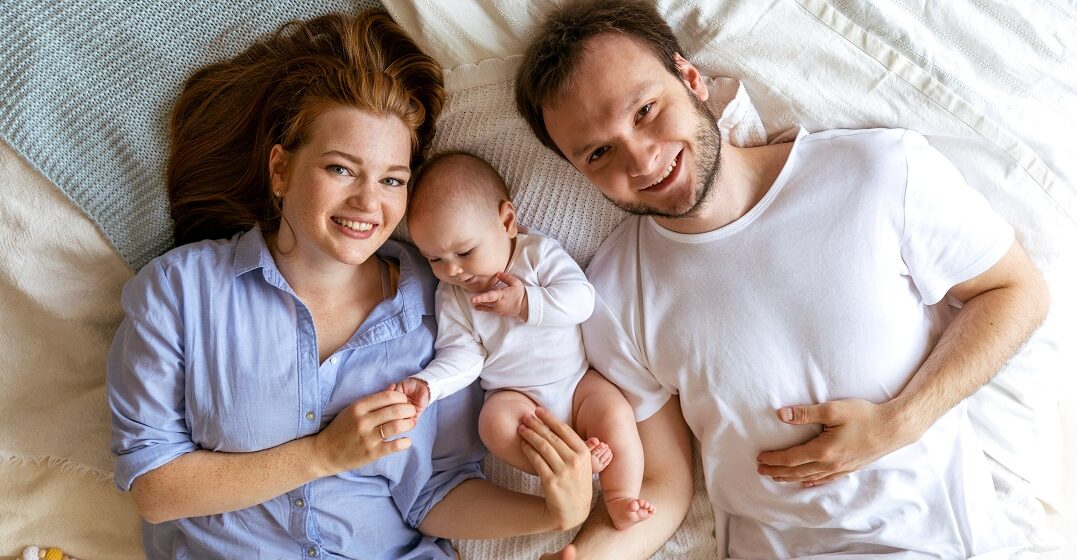Published on December 7, 2023

Parental leave in Germany: Your questions answered

Balancing a career and family in Germany is more manageable thanks to Germany’s relatively generous parental leave policies. Elternzeit (parental leave) offers working parents the chance to prioritize childcare and still have job security.
Mothers and fathers can divide three years each into three periods over the first eight years after birth. Elternzeit is fairly flexible and allows for full or partial use of leave; you may even be able to take on some part-time work. If you are expecting a little bundle of joy and have big plans for the future, read on.
Parental leave in Germany refers to the time parents can take off work to care for their child. The opportunity to temporarily step away from employment responsibilities is guaranteed and regulated by German labor laws.
Mothers are entitled to six weeks of paid leave before birth and eight weeks after birth, adding up to a total of 14 weeks of Mutterschutz (maternity leave). Your job is protected during this time and you are entitled to full pay.
Compared to how long maternity leave is in Germany, ten days of paternity leave might seem a bit short. But it is a step in the direction of equality — and a very recent one at that. Vaterschaftsurlaub will be applicable from 2024.
Employees who usually perform their work in Germany, or whose employment contract was concluded under German law, are eligible for parental leave. Students, interns, self-employed individuals and unemployed individuals typically do not have the right to parental leave.
Parental leave is available for both biological and adopted children, as well as for foster children, stepchildren who will be adopted and the biological children of your partner or grandchildren. This is the case as long as the child lives in the same house as you and doesn’t go to daycare.
Each parent can take up to three years of cumulative parental leave, consecutively or simultaneously. If both parents take parental leave, they can only take a total of four years. For women, the earliest starting date for parental leave is the day of birth. The eight weeks of maternity leave after birth will be automatically deducted from the time of parental leave, though, no matter when you decide to take your parental leave.
When applying for parental leave, you must determine how much time you will take off during the first two years. You do have to take some of your leave before your child’s 3rd birthday. The remaining time can be taken off between the child’s third and eighth birthdays. If your baby was born after July 1, 2015, you can split it into a maximum of three periods (two for births before that date). The employer can agree to more, but this is not mandatory.
Parental leave is not in and of itself paid in Germany, but there are benefits available to support parents while raising a child. Of these, Elterngeld covers at least a big chunk of the time of parental leave. Parental allowance can provide 65% to 100% of your former average wage, but only to a maximum of €1,800. Please notice that Elterngeld doesn’t come automatically with parental leave. You will have to apply for it (and you can do so even if you are unemployed and are not entitled to Elternzeit). To navigate the system and fill in the forms, try to brush up your German and get familiar with the vocabulary you will need.
No, you can’t get fired during parental leave. One of the main points of Elternzeit is that your job is secure while you take time off to care for your child. When parental leave ends, you have the right to return to your old position or to a different one of at least equal status.
Yes. If you’ve been with your employer for over six months, and there are more than 15 employees, you can request to switch to part-time work during parental leave.
You should work at least two months and 15 hours per week (in a month), but not more than 32 hours per week (30 for births before September 1, 2021). If your employer agrees, you could even take on part-time work with another employer or be self-employed.
You don’t actually have to formally apply for parental leave, but you are required to notify your employer in writing within at least seven weeks before the start of the parental leave.
If you want parental leave to start after birth, mothers can apply during the eight weeks of maternity leave following the date of birth. Parental leave between the third birthday and the eighth birthday must be registered at least 13 weeks before the start of that parental leave. For births before July 1, 2015, you must register your parental leave at least seven weeks before the start, whether it’s before or after your child’s third birthday.
Parental leave offers working parents the time to bond with and care for their child. Parental leave is not paid in Germany, but benefits are available for financial support. Elternzeit is designed to be flexible, whether you want to break the three years of leave for each parent up into three periods or work part-time. The best part is, you don’t have to worry about your job. It will be waiting for you when you’re ready to return.